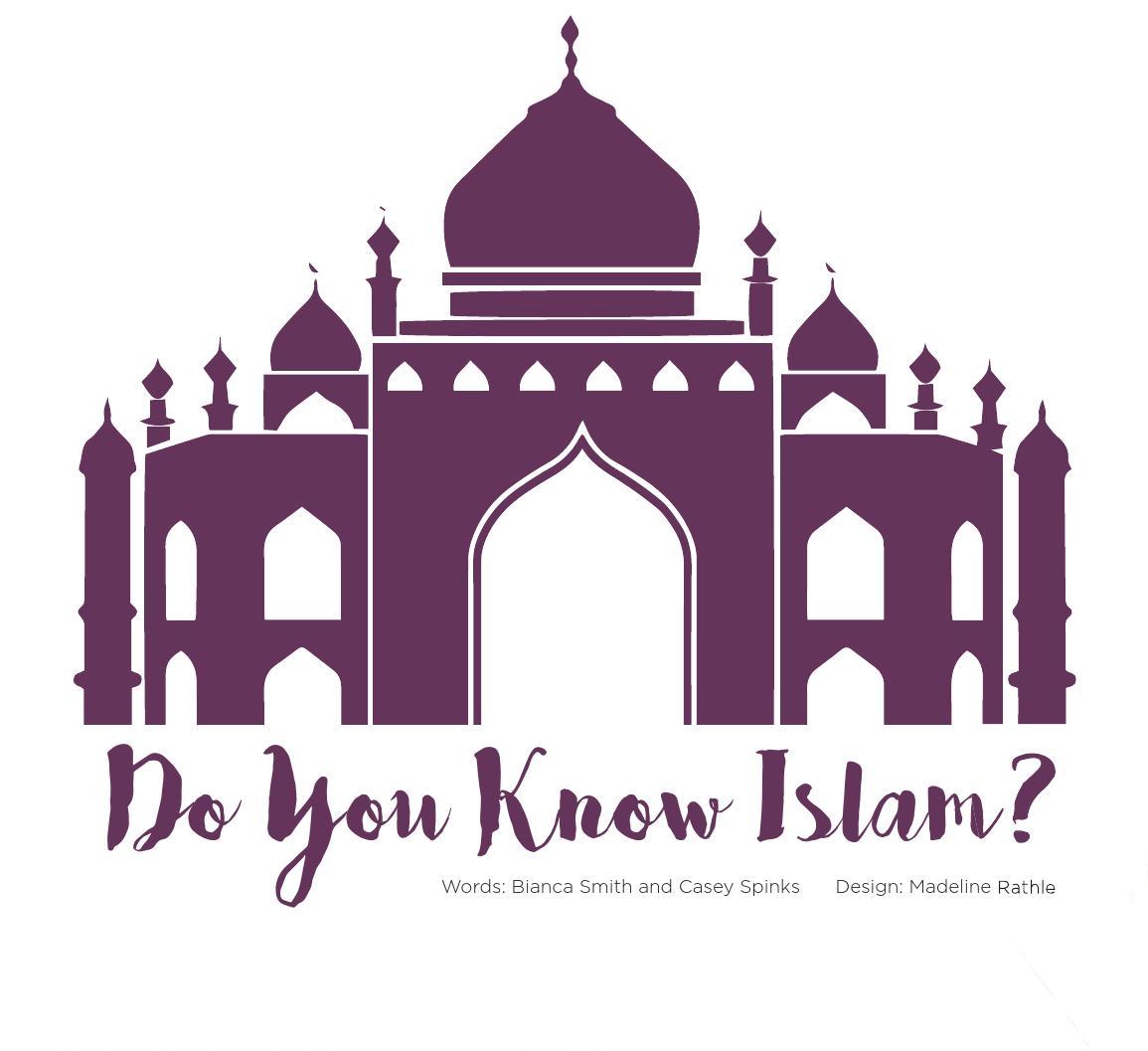Islam is a religion that touches the hearts and minds of over two billion people, making it the second largest religion in the world. Not only does it have an extensive following, its roots and history are just as rich as the land it originated from.
However, over the last 14 years, this rich history has been overshadowed in western media as violent and hateful, morphing billions of lives into faces into one stereotyped image.
One of the biggest pushes in the oppression of Muslims comes from presidential candidate Donald Trump. Trump has focused less on foreign policy and the debt crisis, and more on how Mexicans and Muslims have been “driving America into the ground.” This dramatic display of ignorance and gross parallels of the rise of Neo-Nazism in Europe has taken a toll on many antagonized American Muslims.
With so many attacks against Islam and its followers, it should make us wonder if we know anything accurate about Islam at all.
Do the overwhelmingly negative feelings many Americans have against the religion resonate with LSU students?
While biology junior Brooke Lawrence doesn’t know anyone who is Muslim personally, she believes that their religion is only a fraction of what defines them.
“They are normal people too and their culture and religion is not the only thing about them,” she said.
Lawrence continued to say their faith actually makes them better people. “If anything, if they are dedicated to their faith, it can make them better to be around.”
Another component contributing to the skewed perception of Islam is ISIS, a terrorist group claiming responsibility for dozens of major attacks which occurred around the globe in the past year. ISIS claims its regime stems from the Quran and its teachings, but there’s more to it than that.
Endya Howard, health junior, agreed.
“ISIS does not represent Islam, the actions of a few do not represent the actions and ideas of others, regardless of common religion shared,” Howard said.
The hijab is another common misconception among westerners. Many people believe that it is a symbol of oppression against women.
Theatre major Nick Portier doesn’t see the sacred garment that way.
“It’s a cultural thing. For the most part, that is a religious belief they hold to themselves,” Portier said.
The college setting is a place to provide proper context to these issues about Islam with the help of general education courses.
LSU religious studies adjunct professor Madhuri Yadlapati teaches one of these gen-ed courses – a survey class that covers the basic issues and histories of the world religions.
“Students in most intro classes do not appear to be very familiar with the details of Islam, but this is not terribly different from their familiarity with most other religions,” Yadlapati said.
While the average student may not know much more than the basics—that Muslims emphasize reverence for Muhammad or typically practice prayer five times per day, for example—this is not much different than their knowledge of Hinduism or Judaism.
In her own experience, Yadlapati has not witnessed a terrible bias against Islam.
“I have not seen many students vocalize a bias against Islam. They articulate, for example, that of course, not all Muslims are violent or supportive of terrorism,” she said.
“I think students do generalize and lack nuance, but also want to correct those misunderstandings,” Yadlapati added.
When asked about the violence and history of Islam, Yadlapati made sure to point out that Islamic violence is much more complicated than a superficial judgment.
“Islamic history on war and violence is comparable with most other large, politically organized religious communities. Every empire has used violence and justified warfare to achieve political domination,” she said, though she did admit the problems of violence in Islam today.
“Many scholars point to the political and economic factors and not only theological.”
Yadlapati suggests Islam is no more (or less) accountable for violence than Christianity, Buddhism, or any of the other major world religions.
Islamic law developed an idea of religious freedom and tolerance prior to any modern European civilization. Islamic conversion was focused against Arab polytheism rather than fellow ‘people of the book’—Christians and Jews, and later Hindus.
“It would be a mistake to let [ISIS] define the terms of the conversation and accept uncritically the theological-political justification given by terrorists or by Isis, for example, which picks and chooses only those theological elements that seem to support their agenda and ignores others, an interpretive move that runs counter to Islamic tradition,” Yadlapati said.
The oppression of Muslims and their beliefs is not new, however, with the misrepresentation becoming more of a presence in the political arena during a crucial time in the United States, we really need to take step back and realize how damaging these stereotypes are.
Before falling into the traps of ignorance from others, ask yourself:
Do you know Islam?
Do You Know Islam?
March 2, 2016
Do You Know Islam?







